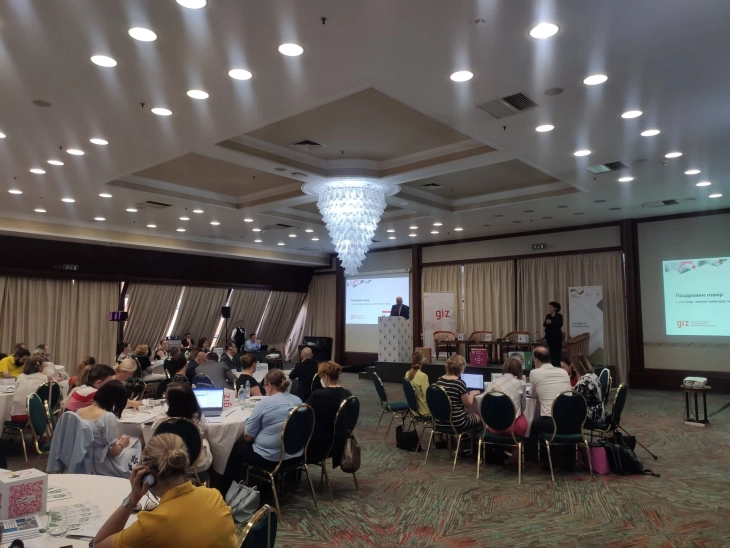Workshop on drafting National Strategy on Rights of Persons with Disabilities
- Post By Ivan Kolekevski
- 12:53, 28 June, 2022

Skopje, 28 June 2022 (MIA) – A national workshop focused on drafting a National Strategy on the Rights of Persons with Disabilities based on the UN Convention on the Rights of Persons with Disabilities, with short-term, mid-term and long-term activities focusing on concrete measures supporting persons with disabilities,, began in Skopje on Tuesday.
Prime Minister Dimitar Kovachevski told the two-day workshop that a framework is being created through coordinated institutional support activities for the implementation of the convention, which would include independent mechanisms for promotion, protection and monitoring of the convention’s implementation with the UN recommendations.
Speaking about the activities undertaken by the Government in this field, PM Kovachevski emphasized that the activities for the support of vulnerable groups of people with disabilities were among their priorities.
“We have included around 200 employees in the support and care of over 1,500 persons with disabilities, we have implemented the right to compensation for persons with intellectual disabilities, we have increased the compensation for short-time work up until 50 percent of the average salary, all children are taken out of the institutions and are cared for in group homes, we guarantee personal assistance and home substitute service,” said Kovachevski.
According to him, those directly affected have the main say in drafting the National Strategy for the Rights of the Persons with Disabilities, and the workshop is part of the process of implementing priorities in support of persons with disabilities.
Minister of Labor and Social Policy Jovanka Trenchevska said in her opening remarks that “Nothing about us, without us” is the motto of the Convention on the Rights of Persons with Disabilities, and the public policies will be created and implemented on the basis of this motto, with active participation of persons with disabilities.
“The preparation of a new National Strategy will be in accordance with the obligations and principles adopted through the Convention on the Rights of Persons with Disabilities and complementary to the European Strategy for the Rights of Persons with Disabilities,” said Trenchevska,
What’s very important, she said, is that we are changing the perception of disability, we are leaving behind the old medical model of perceiving disability, i.e., we are replacing it with a non-medical perception which encourages the strong sides and abilities of children and persons with disabilities, it secures the necessary support they need to receive in order to enjoy equal opportunities and develop their potential.
Otto Graf, Deputy Ambassador of the Federal Republic of Germany, said the aim of the seminar is to implement the principles of the Convention on the Rights of Persons with Disabilities.
“I think these two days will allow us to understand many issues and learn from each other, and I hope we will eventually see a good strategy on the inclusion of persons with disabilities in the society, because the quality of a society is not based on how it delivers basic needs, but how it includes everyone in that society,” said Graf.
Director of the German Corporation for International Cooperation (GIZ) Office in North Macedonia, David Oberhuber, said they want to facilitate the process.
This process includes the Ministry of Labour and Social Policy as the owner of the National Strategy on the Rights of Persons with Disabilities, the National Coordination Body for Implementation of the UN Convention on the Rights of Persons with Disabilities as the initiator of the process for the drafting of the strategy, organizations of persons with disabilities and organizations of parents, the Ombudsman, the Association of Units of Local Self-government of North Macedonia (ZELS), the three largest chambers of commerce and other social enterprises seen as models for labor integration, as well as GIZ.







